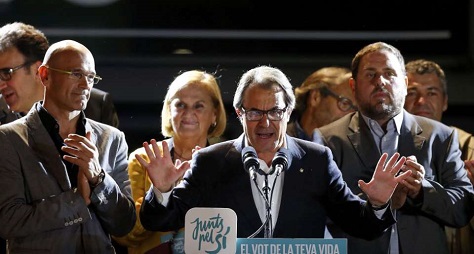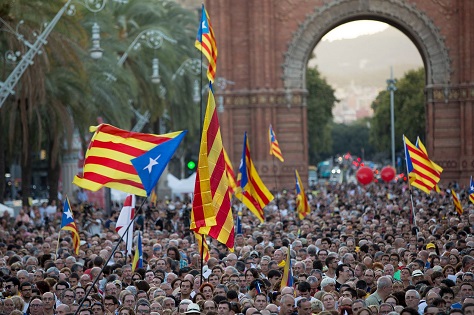
There’s no doubt that the pro-independence Junts pel Sí (Together for Yes) coalition won a resounding victory in Sunday’s regional elections in Catalonia. With nearly 40% of the vote, it is by far the largest force in Catalonia’s regional government and with the support of the ardently pro-independence, hard-left Candidatura d’Unitat Popular (CUP, Popular Unity Candidacy), it is likely to form a government that will carry forward the cause of Catalan independence over the next 18 months. ![]()
![]()
For the first time in Catalan history, an explicitly pro-independence coalition, running expressly on the campaign pledge to enact an 18-month process toward declaring independence, will control the Generalitat, the Catalan government.
But that’s essentially where the good news ends for Catalonia’s independence movement, which now faces the real prospect of hubris and overreach in the days and weeks ahead.
A democratic deficit
The first difficulty is that, though pro-independence parties now control the Catalan parliament, those parties did not, as a technical matter, win a majority of votes in the election. Pro-independence parties together won around 47.9% of the vote, just shy of an outright majority, depriving the pro-independence camp of an important moral victory in its quest. It’s difficult to claim that your movement commands democratic support when a majority of voters, in an election with nearly 77.5% turnout, supported anti-independence parties.
It’s hard to compare the 2015 result against the 2012 result because that’s something of an apples-to-oranges comparison. But in the broadest sense, the parties supporting independence (or at least sympathetic to the cause of Catalan nationalism) won 74 seats in the Catalan parliament. That’s actually two more seats than the pro-independence parties won in the 2015 vote.
Continue reading Catalan election results: pro-independence parties win narrow majority


